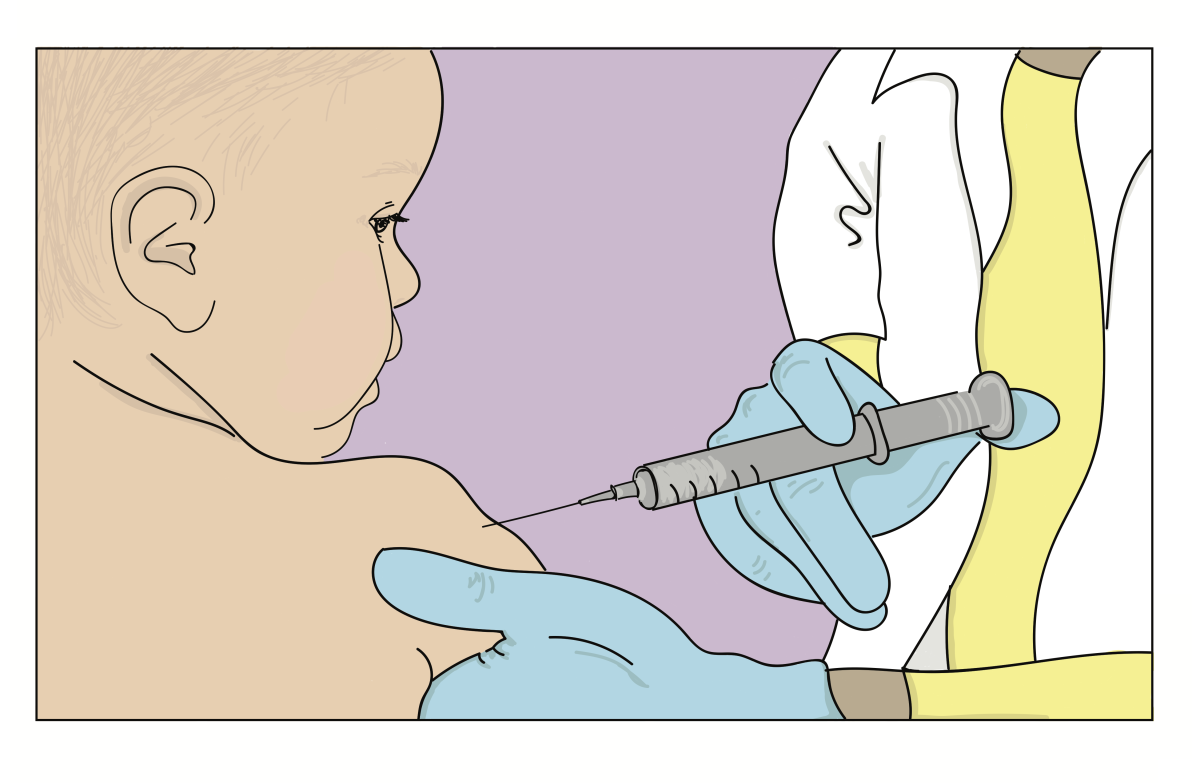How vaccinations are necessary to improve global health
Though anti-vaccination sentiment is not new, there seems to be a sudden surge in discussion about it on social media.
One would think that vaccinations and immunizations would seem like a good thing in the age of ever-developing modern medicine. But it seems as though this isn’t the case.
According to CBS, “At least 43 people in Washington and Oregon have fallen ill in recent weeks with the extraordinarily contagious [measles] virus, which was [assumed] eradicated in the U.S. in 2000 as a result of immunization.”
I find it odd how this virus was eradicated by modern medicine, and there are still people who find immunizations more dangerous than subjecting their children to a potentially deadly disease.
So why is this a common belief?
Immunizations became known in “the early 1800s, following Edward Jenner’s cowpox experiments, in which he showed that he could protect a child from smallpox if he infected him or her with lymph from a cowpox blister.”
This procedure was protested for a variety of reasons, such as a fear of the procedure itself. It received dissent from clergy members, and there was a general distrust of science and medicine at the time.
Since Jenner’s findings, many factors have continued to prompt people to protest vaccinations.
The false study published about a link between immunizations and Autism Spectrum Disorder (ASD) is a common cause for vaccine hesitation. It is important to note, “studies have shown that there is no link between receiving vaccines and developing ASD.”
Beside this common “theory,” other reasoning for anti-vax supporters can stem from philosophical, social, political, religious and various other roots and beliefs.
However, fear and general misinformation tend to the be the primary forces when it comes to parents choosing not to vaccinate their children. According to the World Health Organization, vaccine hesitancy is among the top 10 threats to global health in 2019.
The fact that there are people living in a world with advanced medicine who feel as though they have the right to subject their children to deadly diseases due to their lack of knowledge on the matter is astonishing.
I fully understand a big part of the anti-vax argument, which asserts that the government should not have a say in the private decisions of a family.
This is a fair assertion, considering some people may choose not to vaccinate their children for something like religious reasons. If the government required vaccines and this was enforced, that may infringe on one’s freedom of religion.
However the World Health Organization sustains the fact that “vaccination is one of the most cost-effective ways of avoiding disease. It currently prevents 2-3 million deaths a year, and a further 1.5 million could be avoided if global coverage of vaccinations improved.”

Moreover, vaccinations are already required by specific schools or professions. Centers for Disease Control and Prevention stipulate that “state laws establish vaccination requirements for school children. These laws often apply not only to children attending public schools but also to those attending private schools and day care facilities.”
So yes, vaccinating your children is a “private” matter. But choosing to subject your children to deadly diseases affects those outside of your home. Immunizations are already recognized by larger entities as being something necessary to sustain adequate health within a larger community.
Vaccinations for Measles, Mumps, and Rubella (MMR), Polio, Diphtheria, Tetanus and other diseases are required to attend St. Joe’s with exceptions only for religious reasons. Clearly, a mindset supporting immunizations is pervasive and close to home.
Therefore, it should not be tolerated, not deemed acceptable to allow people to believe they have “the choice” or “the right” to let their child be subjected to deadly diseases when availability to medical care exists. We must recognize the threat anti-vax sentiment poses to the greater good and not just one child or one family.
The availability to vaccinations and preventative medical care at this moment in time is a privilege, not a right. It should be a right and a priority for all people, but sadly this is not the case. It is something we have to work for on a global scale.
There are people around the globe who die from preventable diseases due to their lack of adequate medical care and immunization availability.
We have an amazing level of preventative care in the U.S. For those that are able to access it, use it.










































